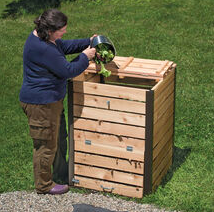“One-third of all food produced for human consumption in the world is never eaten”.
Food and Agriculture Organization of the United Nations
A significant strategy for meeting sustainability goals and demonstrating the ethic of “full cycle recycling” has become food waste collection and composting on university campuses. An on-campus compost system offers the perfect opportunity to integrate the philosophy and application of sustainability in a pure and immediately rewarding way. The financial incentive is extremely beneficial for institutions as well. Universities and Colleges could have a return on the investment in the span of just one year or less. Best of all, it offers students an opportunity to gain valuable hands-on experience with a potentially beneficial aspect of this country’s culture. By reducing food loss and waste, we do not only address the issue of feeding the rapidly growing global population, but we also reduce the substantial environmental impact of food waste.
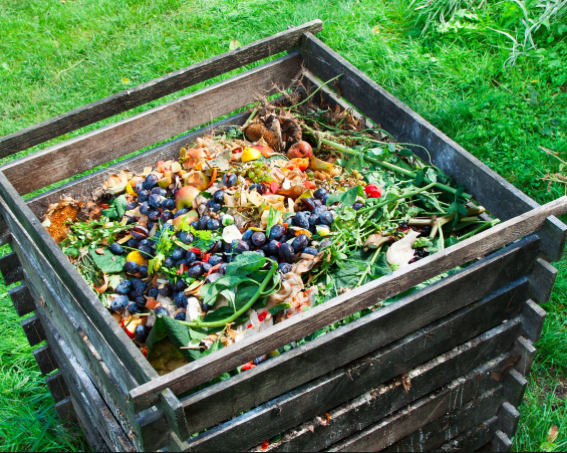
How to: It’s Easier Than You Think
Step 1:
Find a container: a composting container is where you can be creative. Put it somewhere where it is accessible but far enough away from people. Small or large the trick is to have an open bottom so that the natural soil is the first “layer”.
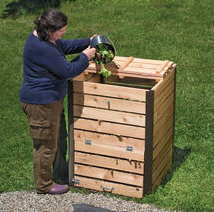
Step 2:
Collect organic material: You can also put in leaves, weeds, plants (dead or alive), garden waste and even paper or cardboard into your compost pile. However, any meat, bones, processed foods, dairy, or pet food is essential to maintaining a clean and healthy compost. Vegetables, eggshells, fruits and coffee/tea grounds are really good for your compost and speed up the natural process.
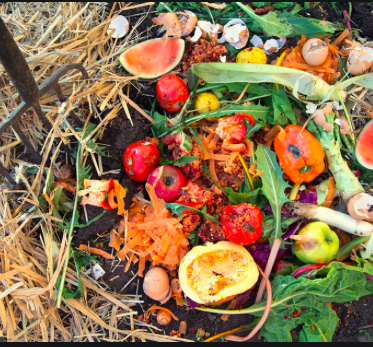
Step 3:
Wait: It will take a little while, but composting will work over time. Keep adding on additional compost materials, and after a few months or sooner you’ll have rich, dark, fertile compost to spread around. One of the most important things for a successful compost is to churn the pile every few days in order to keep a healthy and fertile soil composition.

Step 4:
Apply: Apply your new and fertile soil to your desired location. Home plants, fields, farms, gardens or anything you want to grow are the most common ways people utilize their compost material.

Colleges:
Goshen College in Indiana is flourishing in the composting world. They have created a very successful, low-tech and low-cost system of composting right on campus. The school imposed a trial run that received remarkable support from the faculty and students and the institution began composting food waste in the dining halls. Since then, their model has evolved to become successful due to the strong commitment of students and the implementation of their simple composting method.
“What I like about this approach to composting is its simplicity and community engagement. Rather than invest in a complicated expensive form of technology that operates in the background, Goshen College has chosen to rely on student involvement, creating a simple system, that is easily replicable almost anywhere.”
Sustainability Coordinator, Glenn Gilbert
This school is just one of many examples that exemplifies a school committing to something that makes a difference in this world.
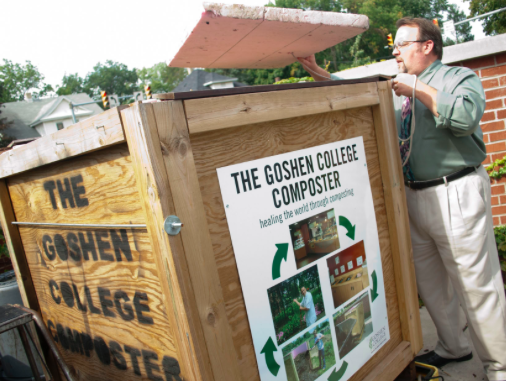
Composting is a critical part of Harvard’s commitment to sustainability on campus, specifically through the reduction of food waste. By composting food scraps, coffee grounds, landscape waste, and other compostable products, the Harvard community helps to divert organic waste from landfills. According to the Harvard website, by 2011, Harvard obtained more tons of organic matter to compost than it rounded up for recycling. Pre, as well as post-consumer composting happens in all of the undergraduate dining halls and food consumption facilities. Composting also occurs at all major events such as Commencement. Cafés, schools, offices, dorms and apartments at the University may opt to carry out compost programs in specific buildings or areas campus wide.
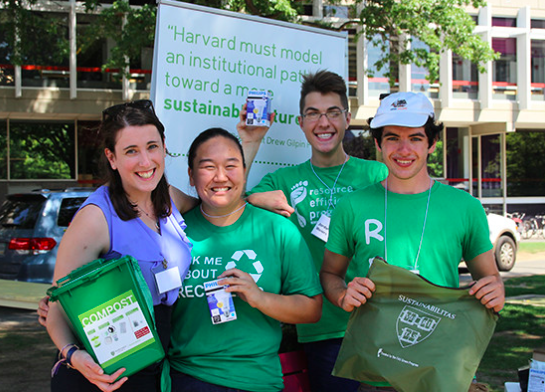
Syracuse University Food Services has imposed a multitude of sustainable practices over the past few years directly on campus. They have successfully introduced composting of food waste and food scraps in the dining centers, reusable containers, and local food shopping. The school also works closely with the student body to redistribute quality food that has been unused and is safe for consumption within the community. SUFS collects the organic waste left over by the consumers and diverts the waste away from the general waste stream (dumped into the ocean or landfills). The organic waste is then sent to the nearby Onondaga County Resource Recovery Agency’s (OCRRA) composting facility where it is then processed into a fertile soil that is repurposed for on and off campus farms.
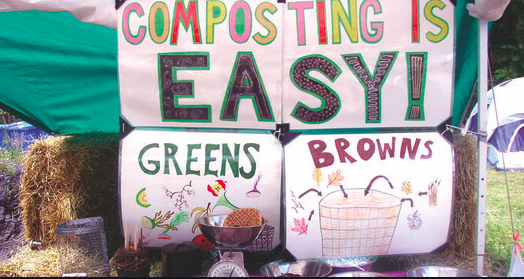
Hey Gettysburg, It’s Your Turn!
Gettysburg College is a rather small liberal arts school that has the capability to go above and beyond the transition of sustainability on campus. In order for Gettysburg College to be successful in this field they must energize the campus as a whole, both students and staff, and get them excited about a new culture of living. This new culture has the potential to be a way of life that is both simpler and healthier for our environment! The school needs to inspire the campus and get everyone on board with coming together as a singular unit, a unit that is driven to a greener world.
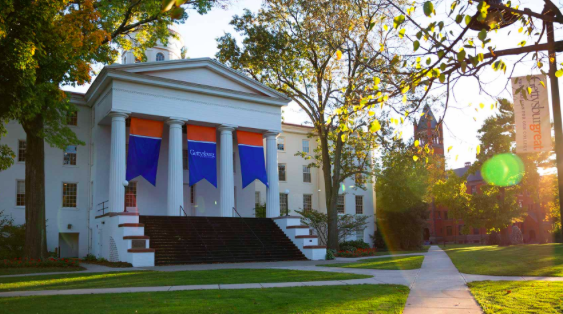
If you would like to lear more about campus sustainability and how composting can be successful on a college campus, please refer to this essay.
